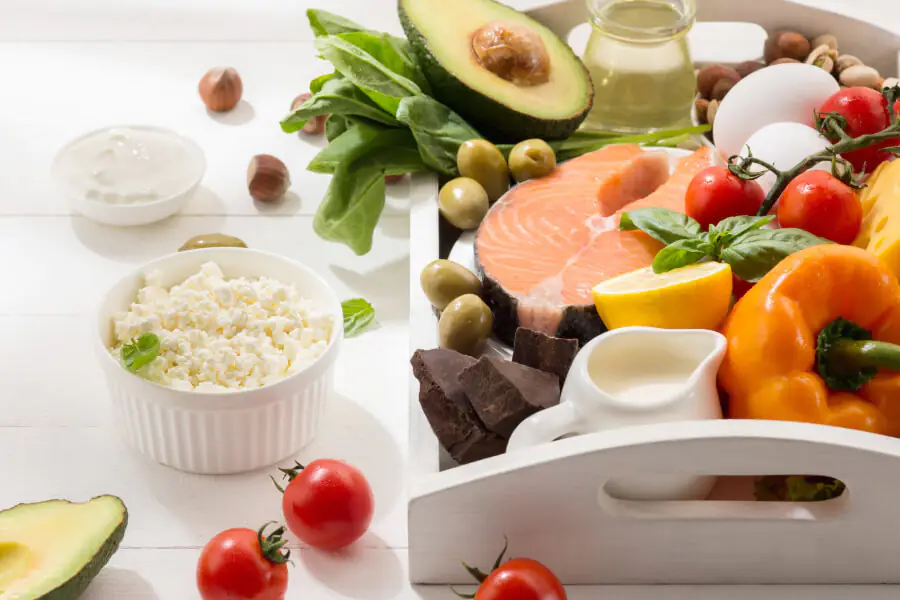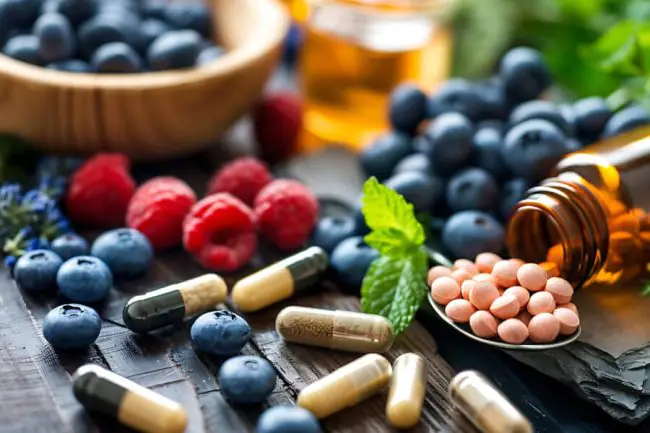The discussion surrounding ADHD (Attention Deficit Hyperactivity Disorder) has gained significant traction, particularly regarding the role diet and ADHD have in managing symptoms.
If you’re seeking information on how a balanced diet can help with ADHD, you’re in the right place!
Discussing the critical relationship between diet and ADHD, highlighting specific nutrients and dietary strategies that can support better focus and cognitive function.
What Nutrition Can Do With ADHD
Nutrition is more than just a means of fueling our bodies; it can significantly impact our mental health, behavior, and cognitive abilities. For individuals with ADHD, dietary choices may influence the severity of symptoms.
Research has shown that a well-balanced diet can contribute to improved focus, reduced impulsivity, and enhanced overall well-being, underscoring the importance of understanding diet and ADHD.
How Does Nutrition Affect It?
ADHD is a neurodevelopmental disorder characterized by symptoms such as inattention, hyperactivity, and impulsivity.
While the exact causes of ADHD remain complex and multifactorial, recent studies suggest that dietary factors may play a role in managing symptoms.
Nutritional deficiencies can exacerbate ADHD symptoms, while a balanced diet rich in essential nutrients can help reduce them, reinforcing the connection between diet and ADHD.
Impact of a Balanced Diet on ADHD
A balanced diet that includes a variety of food groups can lead to significant improvements in ADHD symptoms. Here’s how specific dietary components can make a difference when considering diet and ADHD:
Foods That Support ADHD
Protein Sources for Improved Cognitive Function
Protein is important for brain health and can improve concentration and focus. Adding protein-rich foods to your diet and ADHD management can help stabilize blood sugar levels and promote the production of neurotransmitters that support cognitive function. Some excellent sources of protein include:
- Lean meats (chicken, turkey, and fish)
- Eggs
- Legumes (beans and lentils)
- Nuts and seeds
Essential Nutrients for Brain Health
Certain vitamins and minerals are vital for maintaining optimal brain function and can support diet and ADHD strategies. These nutrients help support neurotransmitter activity and can positively influence mood and focus. Key nutrients include:
- Zinc: Found in meat, shellfish, legumes, seeds, and nuts, zinc plays a role in neurotransmitter regulation and is linked to diet and ADHD.
- Iron: Essential for oxygen transport to the brain, iron is present in red meat, beans, and fortified cereals, and its levels can impact symptoms of diet and ADHD.
- Magnesium: This mineral helps manage hyperactivity and is found in leafy greens, nuts, and whole grains, further supporting the relationship between diet and ADHD.
Balanced Meals for Better Focus and Attention
Creating balanced meals that combine protein, healthy fats, and complex carbohydrates is essential for maintaining steady energy levels and concentration. Here’s how to build a meal that supports diet and ADHD management:
- Breakfast: Start the day with oatmeal topped with nuts and berries. This meal provides sustained energy and essential nutrients, reinforcing the importance of diet and ADHD.
- Lunch: Go for a whole-grain wrap filled with lean protein (like turkey or chicken), plenty of vegetables, and a source of healthy fat (like avocado).
- Dinner: Enjoy grilled salmon (rich in omega-3 fatty acids) with quinoa and steamed broccoli for a nutrient-dense meal that complements a diet and ADHD approach.
Nutritional Supplements for ADHD
In addition to a balanced diet, some nutritional supplements may help manage ADHD symptoms. However, always consult a healthcare professional before introducing new supplements.
The Role of Omega-3 Fatty Acids in ADHD Management
Omega-3 fatty acids are well-known for their positive effects on brain health. Studies have indicated that omega-3 supplementation may reduce ADHD symptoms, particularly in children.
Including omega-3-rich foods in your diet and ADHD strategy can be beneficial. Fatty fish (like salmon, sardines, and mackerel), walnuts, and flaxseeds are excellent dietary sources of omega-3s.
Consider adding these to your meals or discussing omega-3 supplements with a healthcare provider, especially concerning diet and ADHD management.
Vitamins and Minerals That Support Brain Function
Several vitamins and minerals are particularly beneficial for individuals with ADHD, reinforcing the link between diet and ADHD. These include:
- Vitamin B6: Helps with neurotransmitter production and can be found in poultry, fish, potatoes, and bananas, all contributing to a healthy diet and ADHD.
- Vitamin D: Supports overall brain health and can be synthesized through sunlight exposure or consumed through fortified foods and fatty fish, enhancing the overall impact of diet and ADHD.
- Folic Acid: Important for brain function, folic acid can be obtained from leafy greens, beans, and fortified grains, further highlighting the significance of diet and ADHD in cognitive health.
Healthy Eating Habits for Individuals with ADHD
Adopting healthy eating habits can further support individuals with ADHD and improve the diet and ADHD connection. Here are some practical tips to consider:
Tips for a Balanced Diet
- Meal Planning: Take the time to plan meals for the week. This will help ensure that you have nutritious options readily available and reduce the temptation for unhealthy choices, strengthening your approach to diet and ADHD.
- Regular Eating Schedule: Establishing regular meal and snack times can help maintain stable blood sugar levels, which is particularly beneficial for managing ADHD symptoms.
- Stay Hydrated: Proper hydration is essential for optimal brain function. Encourage drinking plenty of water throughout the day, as hydration plays an important role in diet and ADHD.
- Limit Processed Foods: Highly processed foods and those high in sugar can lead to spikes and crashes in energy levels, exacerbating ADHD symptoms and detracting from a healthy diet and ADHD approach.
- Mindful Eating: Practice mindful eating by paying attention to hunger signs and focusing on the experience of eating, which can help develop a healthier relationship with food and improve your diet and ADHD efforts.
Conclusion
A balanced diet can play a significant role in managing ADHD symptoms. By adding nutrient-dense foods and adopting healthy eating habits, individuals can potentially improve their focus and overall well-being.
Remember, dietary changes should be made alongside other treatment options and under the guidance of a healthcare professional, emphasizing the importance of diet and ADHD in holistic management.
FAQs
Why is nutrition important for ADHD?
Nutrition is important because certain foods and nutrients can influence brain health, neurotransmitter function, and overall behavior, making diet and ADHD a vital topic of discussion.
Does diet help with ADHD?
Yes, a balanced diet can help manage ADHD symptoms and improve focus by providing essential nutrients.
Is ADHD caused by nutritional deficiency?
While nutritional deficiency is not a direct cause of ADHD, it can exacerbate symptoms in individuals with the disorder, highlighting the need for a proper diet and ADHD connection.
How does diet and exercise help ADHD?
A combination of a balanced diet and regular exercise can support overall health and may reduce ADHD symptoms by improving mood and cognitive function.







